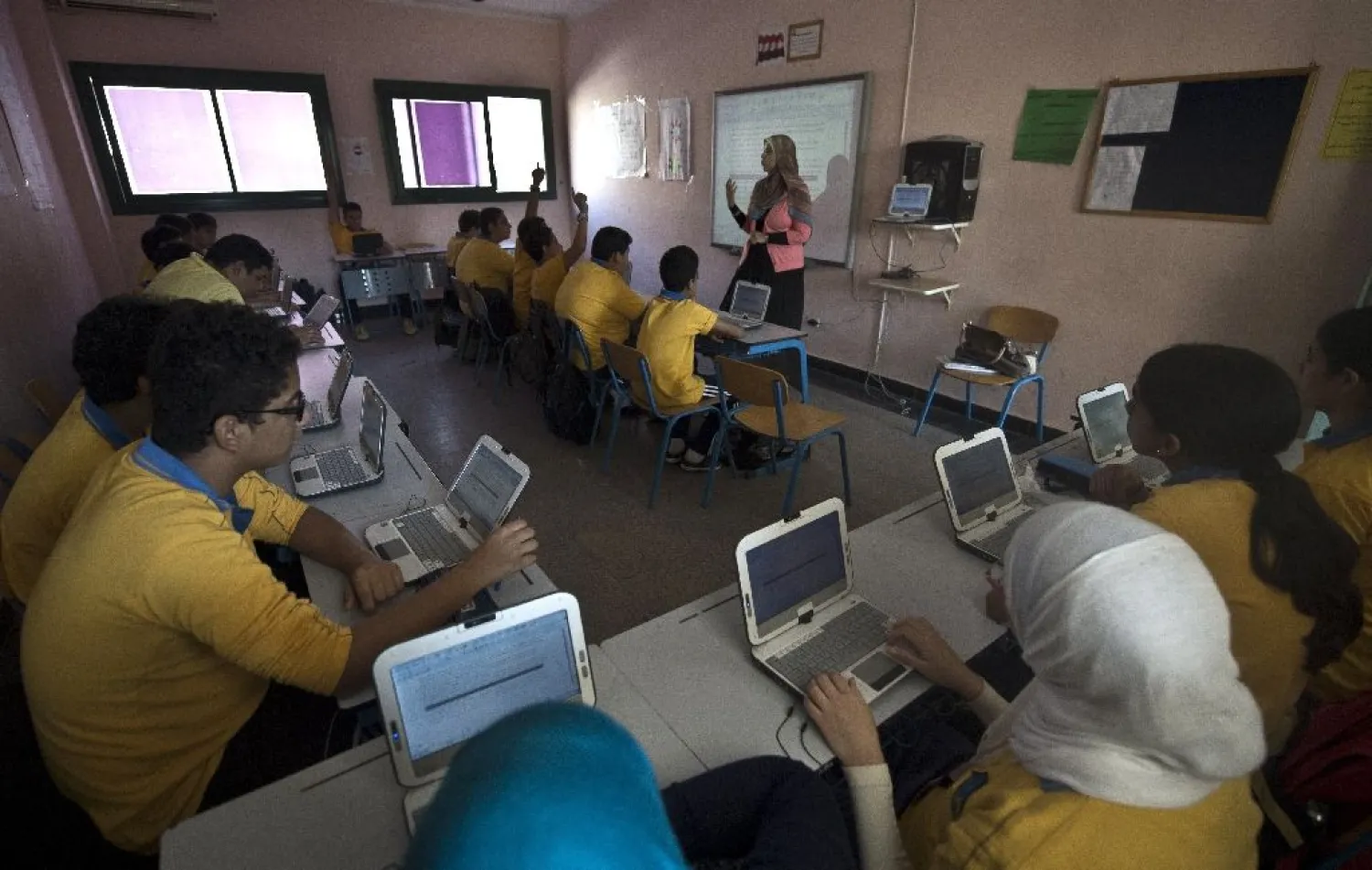Egyptian authorities released a number of secondary school students, who were detained for several hours after protesting against the new education system.
Security sources confirmed that Interior Minister Maj. Gen. Mahmoud Tawfiq “ordered the immediate release of all the students who were arrested and called for defusing the crisis,” which had provoked social anger.
Dozens of students demonstrated on Wednesday in Cairo, Suez, Gharbia and Ismailia, in front of the offices of the Ministry of Education and a number of schools to protest the failure of the electronic exam, calling for the abolition of the new education system.
Security forces arrested a number of these students to halt the demonstrations, which sparked widespread controversy, and great resentment among parents.
The number of students who were detained was unknown.
Some videos and pictures circulated on social media showed members of the security forces arresting students, amid the cries of their colleagues and parents.
Local media quoted security sources as saying that the interior minister had ordered the release of all the detainees to preserve students’ interests and in respect for human rights.
The exams for first-grade secondary students took place on Sunday in the first experiment of the electronic exam system using tablets. However, in many schools, the system was disrupted and the exam was postponed for an hour before some reverted to paper exams.
The Ministry of Education said it had taken the necessary precautions to compensate for the system’s failure, including the paper exam.
Education Minister Tariq Shawqi said: “There was a simple problem that was solved.”
Exams will continue until May 30.
On Wednesday, the second foreign language test could not be held electronically on the tablets, because the platform in several schools also failed. The schools resorted instead to the paper exam.
Students who participated in the protests said that the electronic exam system exposed them to injustice and wasted their time as they had to sit for the exam twice.









